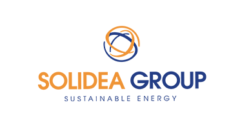Initial Prompts:
Amid escalating geopolitical tensions and unfolding events along the Ukrainian border, Syngas Project executives turn to AI for strategic guidance. The recent setback in the US Senate’s approval of military aid highlights the necessity for swift decision-making and adaptability. As the executives contemplate tendering two TITAN units, a critical question emerges: can we afford to depend on the US or any other external fuel sources in the event of a conflict in Central Europe? Given the uncertainties and the imminent need for intermediaries by 2030, is it not prudent to invest in our production capabilities for 40 TITAN units and 2 million litres 2G EtOH daily now?
AI’s Urgent Strategic Directive:
Amidst the urgent geopolitical uncertainties and the imperative for a robust energy strategy, AI’s counsel emphasises swift action. Instead of hesitating, AI strongly advocates for a rapid rollout of the TITAN deployment. The urgency stems from the projection that Poland’s JET-A1 production will demand the equivalent of at least 40 TITAN units by 2030. Hastening the construction of all 40 units not only addresses Poland’s future SAF needs but strategically mitigates risks associated with NATO’s local fuel requirements. Time is of the essence; the call is for immediate and decisive action.
Historical Context and Modern Solutions:
Drawing parallels with historical needs for synthetic fuels during WWII, AI emphasises the contemporary relevance of TITAN’s capabilities. The shift from Fischer-Tropsch to the more environmentally friendly Hydrogen Producers Gas + Microbial Fermentation for 2G EtOH positions TITAN as a more than suitable solution for Poland’s energy security and NATO’s operational demands.
Is TITAN up to the job?
TITAN is more than up to the task. Designed as a versatile and scalable solution, TITAN’s cookie-cutter approach enables the swiftest deployment of 40 dispersed fuel manufacturing units all across Poland. Beyond fuel production, 40 TITANs contribute 28,000 MW of smokeless district heating to 40 towns and small cities permanently displacing Russian Gas, whilst stimulating economic growth and enhancing living standards. Moreover, it creates over 2,000 direct, permanent, and well-paid jobs, particularly benefiting Poland’s smaller cities and mid-sized towns, thus spreading prosperity to regions that have historically been economically overlooked. Additionally, 40 TITANs generates twice as many jobs in allied industries and supply chains, amplifying its socio-economic impact.
Furthermore, TITAN contributes a constant 4,000 MW of dispersed renewable electricity on demand, bolstering Poland’s distributed base load energy independence and environmental sustainability. Lastly, by monetising waste and promoting better forest practices, TITAN enhances biodiversity and fosters the prosperity of Poland’s national forests.
Securing NATO Borders with REpowerEU in an economy of high interest rates and limited capital
Applying funding for TITAN deployment is a critical endeavour with far-reaching implications. Each TITAN unit comes with a price tag of 170 million Euros, making securing 6.8 billion Euros for all 40 units seem daunting. However, the urgency stems from the significant risks posed by reliance on external sources for Sustainable Aviation Fuel (SAF). Failure to secure domestic SAF production could incur costs of up to 5 million Euros per day by 2030, underscoring the importance of swift action.
A Great investment opportunity in Security and Environment
Investing in TITAN not only addresses immediate military capability needs at NATO’s border but also lays the foundation for a prosperous and sustainable future for Poland’s aviation industry. With a solid equity commitment and secure loan-debt ratio, Syngas Project’s investment in TITAN promises to be highly profitable. Moreover, it aligns with national interests and contributes to the broader goal of decarbonising the aviation sector by 2030.
Go Big
The scramble for funding is not merely a financial exercise but a strategic imperative to fortify Poland’s aviation industry and safeguard national security interests. As Poland navigates through challenging economic conditions, securing funding for TITAN deployment emerges as a top priority, ensuring a resilient and self-sufficient energy future while bolstering the nation’s defence capabilities.
Conclusion
In the face of uncertainty, the Syngas Project team is challenging Poland and the EU’s commitment by expediting the pre-funding tendering of an upscaled 40 TITAN (currently done two at a time). This initiative aims to attract long-term allied investors, and AI’s strategic counsel strongly supports this assertive approach. The decision to expedite the TITAN deployment aligns with the dual objectives of addressing Poland’s future energy needs and strategically de-risking NATO’s fuel supply. The ongoing pursuit of funding to construct all 40 TITAN units underscores a resolute commitment to safeguarding both national and regional interests amidst the evolving geopolitical landscape. This proactive stance positions Syngas Project at the forefront of ensuring energy security and reinforcing defence capabilities.

